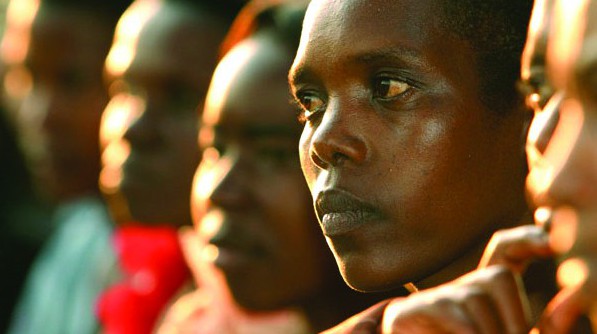
Extremist groups such as the Islamic State (ISIS) and Boko Haram are using rape as a weapon of war, a new U.N. report warns, highlighting the unique vulnerabilities of women and girls in conflict zones.
U.N. Secretary General Ban Ki-moon said Monday that 2014 was marked by hundreds of accounts of rape, forced marriage and sexual slavery in war-torn countries such as Iraq, Syria, Somalia, Nigeria and Central African Republic.
Ban expressed “grave concern” over the findings of the annual U.N. report, which identified 19 conflict-ridden countries where sexual violence including rape, sexual slavery, forced prostitution and forced pregnancy occurs, mainly against women and girls but also against boys and men.
The report also lists 45 groups in Central African Republic, Ivory Coast, Congo, Iraq, Mali, Somalia, South Sudan and Syria as well as Boko Haram in Nigeria that are “credibly suspected of committing or being responsible for patterns of rape” in conflict, concluding these extremist groups were using sexual violence as part of a systematic terror campaign.

ISIS is one of 45 extremist groups identified in the report for their use of sexual violence as a “tactic of terror.”
“The confluence of crises wrought by violent extremism has revealed a shocking trend of sexual violence employed as a tactic of terror by radical groups,” Ban said, adding that defeating terror groups around the world is “an essential part of the fight against conflict-related sexual violence.”
According to the report, there has been an increase in cases of sexual violence since mid-2014, following the insurgence of ISIS last summer, which resulted in the abduction, rape and sexual enslavement of thousands of girls from the Yazidi community, who have mostly borne the brunt of ISIS’s persecution of non-Muslims and non-Sunnis. The report said ISIS “uses sexual violence to spread terror, persecute ethnic and religious minorities and suppress communities that oppose its ideology.”
Earlier in April, reports emerged that Yazidi girls had been snatched from their mothers, sold to ISIS fighters, tortured and even raped in public by more than two or three insurgents at a time before being freed by ISIS in northern Iraq.
The U.N. report was published as Nigerians mark one year since more than 200 schoolgirls were kidnapped by Boko Haram in Chibok, Borno state. The terrorists abducted some 270 schoolgirls from Chibok on April 14, 2014. Shortly after, 50 girls managed to escape but the rest are still missing amid reports they are being used as suicide bombers, raped and forced to marry their abductors.

Today, April 14, 2015, marks one year since more than 200 girls from a Nigerian school were kidnapped by members of the terror group Boko Haram.
“Forced marriage, enslavement and the ‘sale’ of kidnapped women and girls are central to Boko Haram’s modus operandi and ideology,” it said. “Abducted girls who refuse marriage or sexual contact within marriage have faced violence and death threats.”
In a separate report, the UN Children’s Fund (UNICEF) warned that some 800,000 children have been displaced due to violence by Boko Haram. Many of them have been separated from their families and are subjected to abuse such as rape and forced marriage. Some of them are also being used by the terrorists as combatants and for suicide bomb missions.
The U.N. emphasized that sexual violence is not “only” a consequence or side effect of war and displacement, but a deliberate tool of war used to destabilize and threaten a part of the civilian population, often a particular group. Women and girls are singled out because the harm and humiliation inflicted on them not only hurts them but also deeply harms and humiliates their families and often the entire community. Unfortunately, too often when even the war might have finished, rape hasn’t.
In addition to the devastating social and psychological consequences, research has also shown an unequivocal link between sexual violence in conflict and HIV/AIDS — in one study, 67 percent of rape survivors in Rwanda were subsequently found to be HIV positive. With a lack of medical resources and limited access to health care for many in war torn nations, this proves to be a slow death sentence. Many women who are raped during conflict become pregnant, leading to a rise in unsafe abortions, many of which are fatal. For the women or girls who continue with the pregnancy, their children face neglect, stigmatization or worse.
